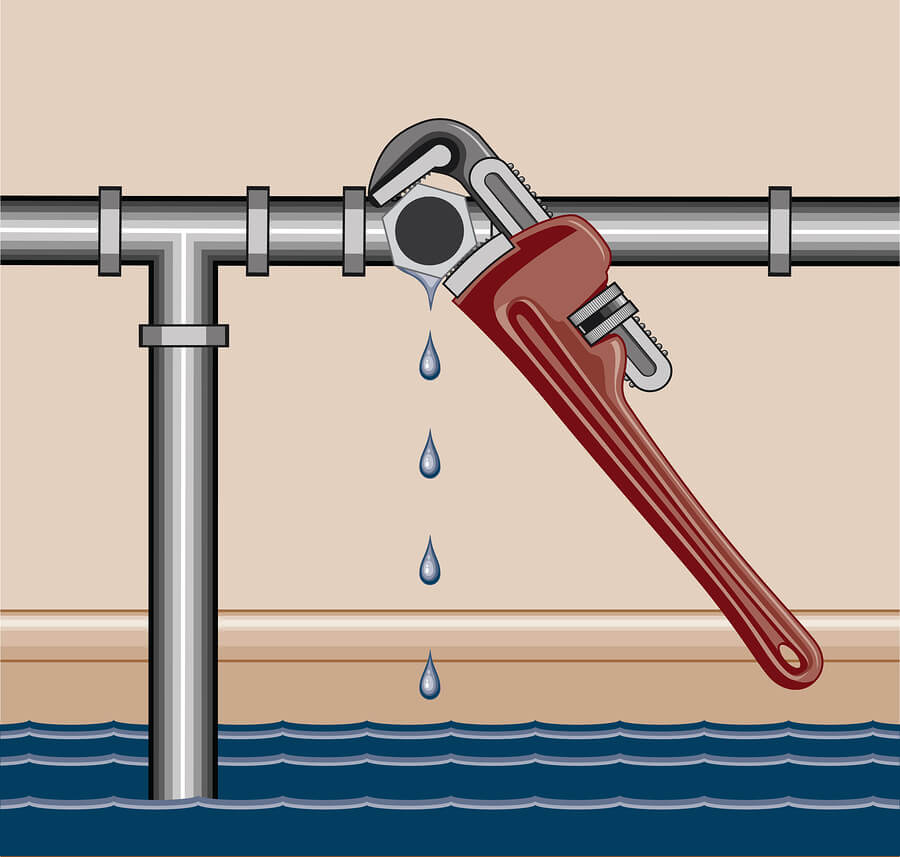The Six Most Common Water Leaks in Your Home: How They Happen and What to Do
The Six Most Common Water Leaks in Your Home: How They Happen and What to Do
Blog Article
We've discovered this article involving How Fast Water Damage Can Ruin Your Home directly below on the internet and decided it made good sense to talk about it with you over here.

Leakages not just trigger waste of water but can additionally trigger unnecessary damages to your house and promote unwanted natural growth. By recognizing as well as looking for daily circumstances that cause leakages, you can safeguard your residence from future leaks and also unnecessary damages.
Instant temperature level adjustments.
Extreme temperature level modifications in our pipelines can cause them to broaden and contract suddenly. This expansion and also tightening may trigger splits in the pipes, particularly if the temperature level are listed below cold.
Corroded water systems
This might be the cause of discoloration or warping on your water pipes. If our plumbing system is old, take into consideration changing the pipelines since they are at a higher risk of corrosion than the newer designs.
Malfunctioning Pipeline Joints
Pipeline joints can degrade over time, resulting in water leakages. If you have noisy pipelines that make ticking or banging noises, especially when the hot water is turned on, your pipe joints are probably under a whole lot of pressure.
Trespassing origins
The majority of water leaks start outside the house rather than inside it. If you observe a sudden reduction in water stress, claim in your tap, require time to go out as well as examine your lawn. You could observe damp patches or sinkholes in your lawn, which might mean that tree origins are attacking water lines triggering water to leak out. You can have your plumber check for breach, particularly if you have trees or bushes near your home.
Poor Water Connectors
Sometimes, a leakage can be caused by loosened hose pipes and pipelines that supply your devices. Typically, changing is what causes the loosened water Connections. You could discover when it comes to a washing equipment, a tube might spring a leak because of shaking throughout the spin cycle. In case of a water connections leak, you might see water running directly from the supply line or pools around your home appliances.
Clogged Drains
Blocked drains pipes might be aggravating and inconveniencing, yet they can often wind up triggering an overflow leading to rupture pipelines. Maintain removing any type of products that may decrease your drains pipes that can block them to avoid such troubles.
All the above are root causes of leaks but not all water leaks arise from plumbing leakages; some leaks might originate from roof leaks. All leaks must be fixed instantly to prevent water damages.
Leakages not only trigger waste of water yet can additionally cause unnecessary damage to your house and also promote unwanted organic growth. By looking and also understanding for everyday circumstances that create leakages, you can shield your residence from future leaks and unnecessary damage. Today, we will look at six leak triggers that might be triggering your pipelines to trickle.
At times, a leakage can be caused by loose hoses and pipes that supply your appliances. In case of a water connections leakage, you may discover water running directly from the supply line or puddles around your appliances.
How To Check For Water Leak In Your Home
How To Check for Leaks
The average household's leaks can account for nearly 10,000 gallons of water wasted every year and ten percent of homes have leaks that waste 90 gallons or more per day. Common types of leaks found in the home are worn toilet flappers, dripping faucets, and other leaking valves. These types of leaks are often easy to fix, requiring only a few tools and hardware that can pay for themselves in water savings. Fixing easily corrected household water leaks can save homeowners about 10 percent on their water bills.
To check for leaks in your home, you first need to determine whether you're wasting water and then identify the source of the leak. Here are some tips for finding leaks:
Take a look at your water usage during a colder month, such as January or February. If a family of four exceeds 12,000 gallons per month, there are serious leaks.
Check your water meter before and after a two-hour period when no water is being used. If the meter changes at all, you probably have a leak.
Identify toilet leaks by placing a drop of food coloring in the toilet tank. If any color shows up in the bowl after 10 minutes, you have a leak. (Be sure to flush immediately after the experiment to avoid staining the tank.)
Examine faucet gaskets and pipe fittings for any water on the outside of the pipe to check for surface leaks.
Undetected water leaks can happen without the home or business owner even realizing. If you suspect a water leak, but not able to find the source. It is time to contact a professional water leak detection service, The Leak Doctor.
How To Find a Water Leak In Your Home
https://www.leakdoctor.com/blog/How-To-Check-For-Water-Leak-In-Your-Home_AE197.html

As an enthusiastic person who reads on Common Water Leaks In House, I assumed sharing that piece was beneficial. Do you know about another individual who is occupied with How to Find Water Leaks? Take a moment to share it. Bless you for your time. Please come by our blog back soon.
Visit My Web Page Report this page